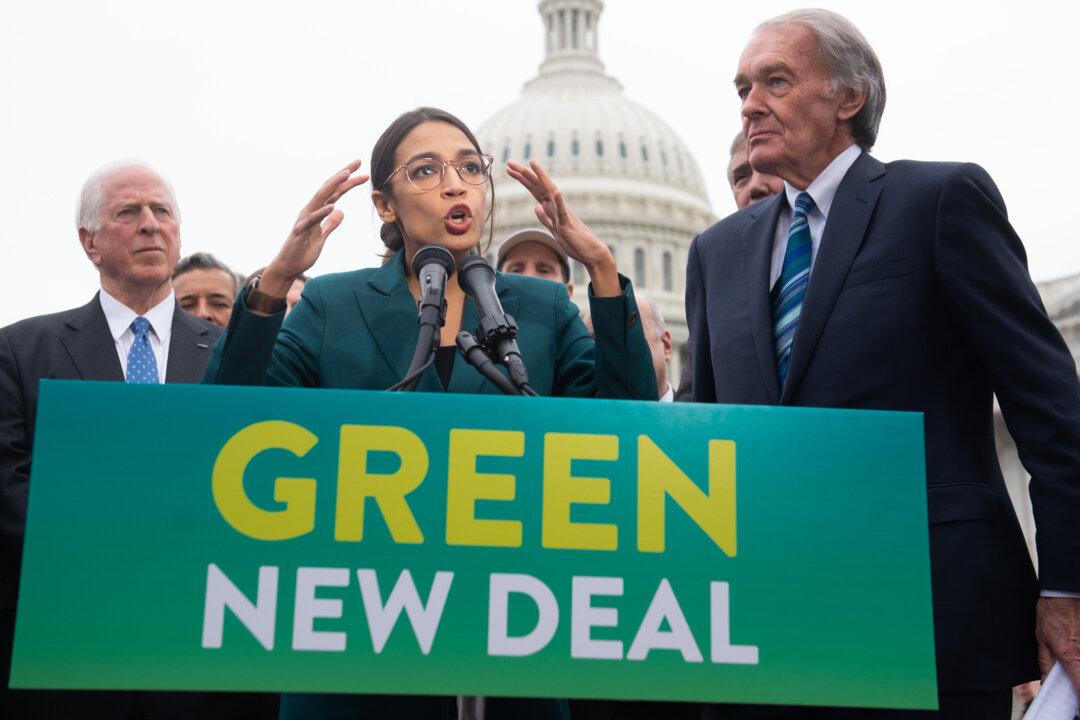A think tank led by a former Congressional Budget Office director said Rep. Alexandria Ocasio-Cortez’s (D-N.Y.) big plan to fight climate change could cost as much $93 trillion.
By comparison, total government spending over the next 10 years is projected at less than $60 trillion, according to the Congressional Budget Office.





